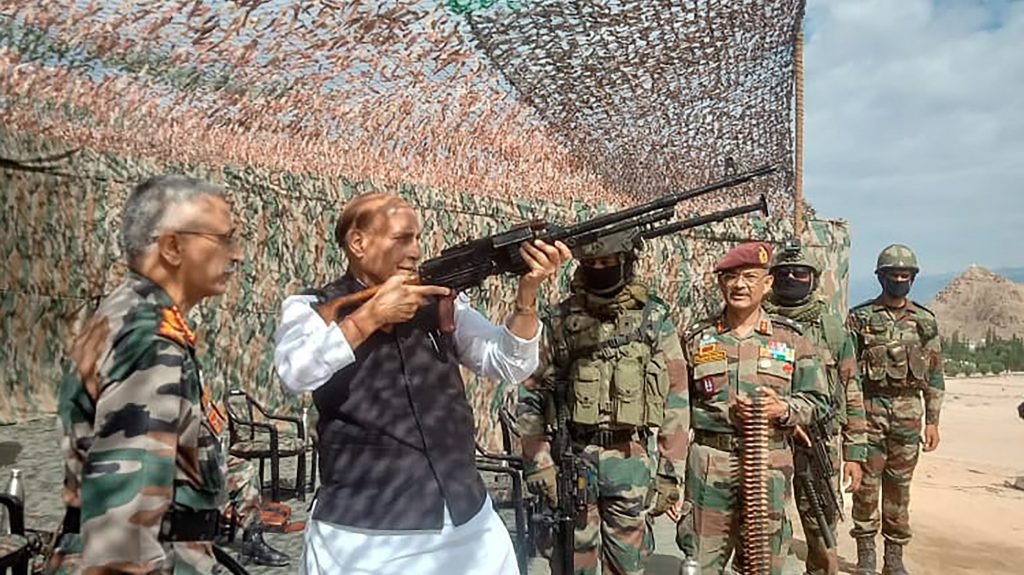Defence Minister’s visit to Ladakh region: Friction Points with China on a rise

The Galwan Valley attack last year had put India in a much cautious mode after the border conflict escalated into a chaotic confrontation between India and China. Even after a year, with the disengagement plan in implementation, the Chinese haven’t acknowledged the presence of troops near Pangong Tsao Lake. Defence Minister Rajnath Singh on his recent visit to the Ladakh region had given some befitting replies to India’s neighbours. The visit marked the first time since the disengagement in the region was decided. Despite the de-escalation and the numerous rounds of talks between the commanders of both the Indian Army and the PLA, China seems to have been ‘rotating troops’ along the Line of Actual Control. The neighbour’s attempts to alter or disrupt the status quo has always proven to be problematic and despite dialogue, the results had never caught fruit. India’s firm and non-escalatory approach may have removed conflicts in the short run, but the narrative around these border disputes seems unpredictable.

The Defence Minister’s also marked the inauguration of the 63 Bridges which will further allow a smooth movement of heavy weaponry in the rocky mountain ranges. Rajnath Singh mentioned, “I’m confident that the bridges inaugurated today will play a crucial role in strengthening security as well as promoting the economic development of the respective states through improved connectivity.” Apart from this, the Minister was also briefed about the developments in the region, given the points of friction between Indian and Chinese troops have been on a high since May 2020. As per the reports received, the points of friction remain to be Hot Springs, Gogra and Despang. The 11th Round of talks did not appear settling and no visible movement as part of the disengagement was witnessed after that.
Last week Chinese Foreign Minister Zhao Lijian mentioned in his interview with Bloomberg that necessary steps are taken by the Chinese PLA only when there is encroachment and a threat to the security. It was indeed an ironic statement given that India has always respected the sovereignty and autonomy of other nation-states. Although the Ministry of External Affairs was quick enough to slam the accusations made by the ‘wolf warrior, Defence Minister Rajnath Singh also refuted the remarks stating, “Efforts should be made to find a solution through dialogue with neighbouring countries. The intention should be clear. We neither want to show eyes to anyone, nor do we accept anyone raise eyes at us. Our Army can give a befitting reply to every challenge.”
India has always been a propagator of peacebuilding and never hesitated away from resolving conflicts. “We are the priests of world peace. Even when we take up weapons that is to establish peace. Till date, India has neither attacked any country, nor have we captured an inch of land of any country,” Rajnath Singh added.
India’s long-standing confrontation and disputes with its neighbours, in particular, China and Pakistan is a major disruption for the country to pursue its lead in the geopolitics of South Asia.


















